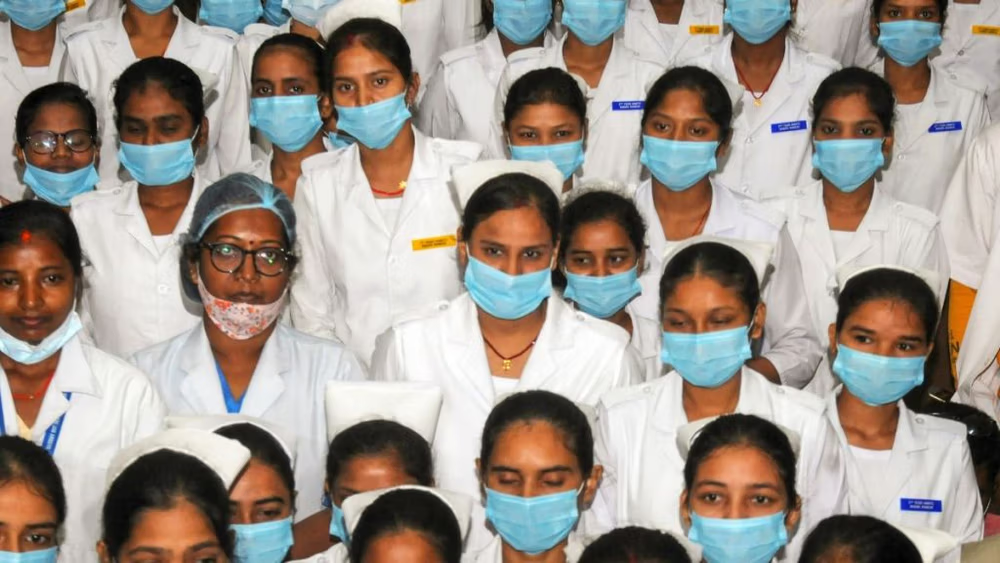India has reported a fresh surge in COVID-19 cases, with total active infections rising to 1,010, sparking renewed concern nationwide. The increase in cases comes with two new variants—NB.1.8.1 and LF.7—currently under the World Health Organization (WHO) observation.
Kerala has recorded the highest number of new infections with 335 cases, followed by Maharashtra (153), Delhi (99), and Gujarat (76). Delhi’s Chief Minister, Rekha Gupta, has assured the public that hospitals in the capital are fully prepared to manage a potential increase in patient load.
Meanwhile, Punjab confirmed its first case earlier today and has initiated contact tracing protocols.
“The situation is under control, and there is no reason to panic,” health officials reiterated, emphasizing that the current symptoms are largely mild and subtle.
Variants Under Scrutiny
According to the Indian SARS-CoV-2 Genomics Consortium (INSACOG), the new NB.1.8.1 variant—linked to the JN.1 lineage—appears more transmissible due to enhanced binding to human cells. To date, 58 genome sequences of NB.1.8.1 have been logged globally from 22 countries. The LF.7 strain is reportedly prevalent in southern India and metro cities, while related international cases have also surfaced, including from the U.S.
Common Symptoms in 2025
Most reported cases exhibit mild symptoms, including:
- Sore throat
- Fatigue
- Mild cough and fever
- Muscle aches
- Nasal congestion
- Headaches and nausea
- Gastrointestinal discomfort
Health experts advise citizens experiencing symptoms for more than 3–4 days to undergo a rapid antigen or RT-PCR test, and avoid crowded spaces as a preventive measure.
Context and Caution
The rise follows a pattern last seen during the pandemic waves that began in March 2020 and lasted over two years, claiming over 500,000 lives in India. Although the severity appears significantly reduced, experts urge the public to maintain hygiene protocols and remain vigilant.
So far, seven deaths have been reported since May 19 across Maharashtra, Karnataka, Rajasthan, and Kerala—primarily attributed to underlying health conditions.
The Ministry of Health continues to monitor the situation closely. Although there is no global health alert, the new variants remain under active surveillance.






